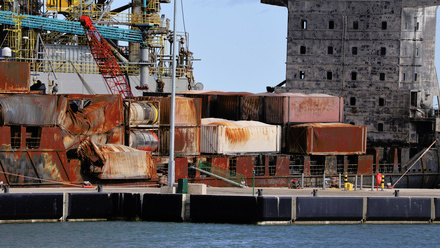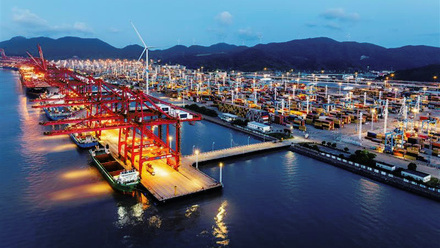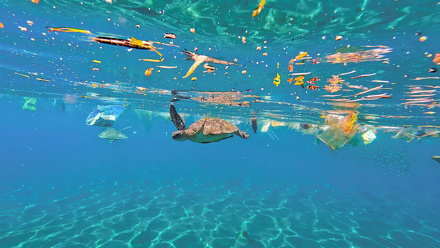Removing plastic bottles from ships: a sustainable maritime shift
The industry, a backbone of global trade, is increasingly under scrutiny for its environmental footprint.
While much attention in shipping focuses on emissions and fuel efficiency, another significant issue is the use of plastic bottles on ships. Removing them represents a critical step towards reducing pollution, promoting recycling, and embracing sustainability in an industry that impacts every corner of the world.
Plastic pollution is a global crisis, with over 11 million metric tons of plastic waste entering the oceans each year. Ships contribute to this problem, as they often rely on plastic bottles for drinking water and other beverages.
A single large ship can consume tens of thousands of plastic bottles annually and if not properly managed, these can contribute to ocean pollution. The marine environment is particularly vulnerable; plastics do not biodegrade but break down into microplastics, which are ingested by marine life and eventually enter the human food chain.
Eliminating plastic bottles from ships could significantly reduce this form of pollution. It would also align with broader environmental goals, such as those outlined in the International Maritime Organization’s (IMO) plan to address marine plastic litter from ships, which emphasises reducing single-use plastics.
Recycling and waste management at sea
Recycling at sea presents unique challenges. Ships operate in isolated environments, where waste management options are limited. On land, the infrastructure for recycling plastic bottles is well-established in many regions, but replicating this on ships is more complex. Waste must be stored for extended periods and managed in confined spaces, making recycling less straightforward.
However, some shipping companies are already taking steps to improve waste management and recycling. For example, advanced waste treatment systems that include shredders, compactors, and incinerators are being installed on modern vessels. These systems can reduce the volume of waste, including plastics, and in some cases, convert waste into energy.
The cost of plastic pollution is not just environmental but also economic. According to a study by the United Nations, the overall economic impact of plastic pollution on marine ecosystems is estimated to be $13 billion annually. This figure includes the cost of cleaning beaches, the impact on fisheries, and the damage to marine tourism. For the shipping industry, the indirect costs include potential fines for non-compliance with environmental regulations and the loss of business from environmentally conscious clients.
Additionally, many ports now charge higher fees for the disposal of plastics, incentivising ships to minimise their plastic waste. As more ports and regions adopt strict regulations on waste management, the cost of maintaining plastic bottles on ships is likely to rise, making alternatives more financially attractive.
Implementation strategies
Several strategies have been proposed and are being implemented to remove plastic bottles from ships. One effective approach is the installation of onboard water filtration and purification systems. These systems allow crewmembers to refill reusable bottles with potable water, eliminating the need for single-use plastic bottles. Some cruise lines, such as Hurtigruten, have already put in such systems, drastically reducing their plastic footprint.
Another method involves collaboration with suppliers to minimise packaging waste. Shipping companies can work with beverage suppliers to provide drinks in alternative packaging, such as aluminium cans, which are more easily recyclable than plastic. Additionally, adopting a circular economy approach — where all waste is seen as a resource — can further reduce plastic use. This could involve returning packaging materials to suppliers for reuse or recycling at port facilities.
Education and training for crewmembers are also essential components of successful change. By fostering a culture of sustainability on board, ships can ensure that waste reduction practices are consistently followed, even under the demanding conditions of maritime operations.
The journey towards removing plastic bottles from ships may be challenging, but with the right strategies and commitment, it is a vital step towards a more sustainable future for the maritime industry and the planet.
Discuss this topic at length in the Ocean Plastics and Marine Litter Special Interest Group.
Image: plastic bottle washed up on an island in East Nusa Tenggara, Indonesia; credit: Shutterstock.
Tell us what you think about this article by joining the discussion on IMarEST Connect.






